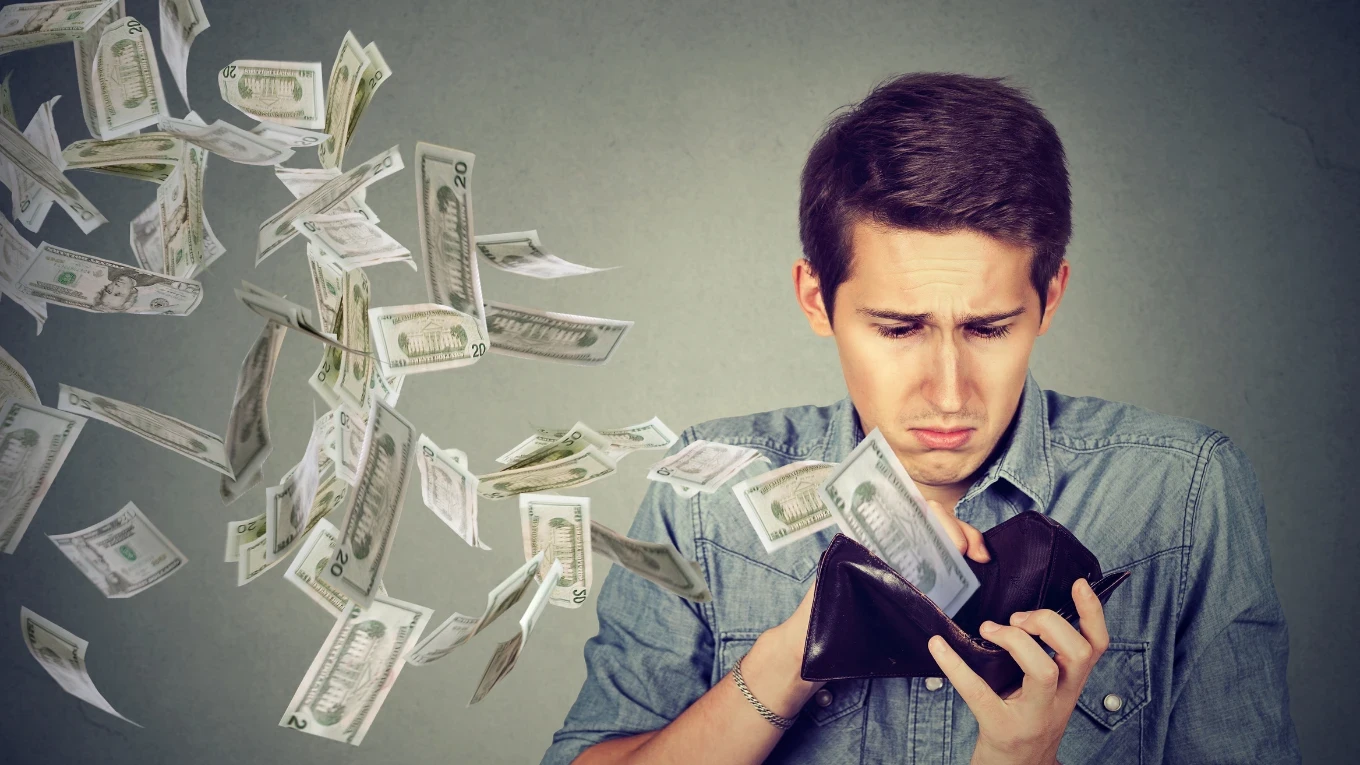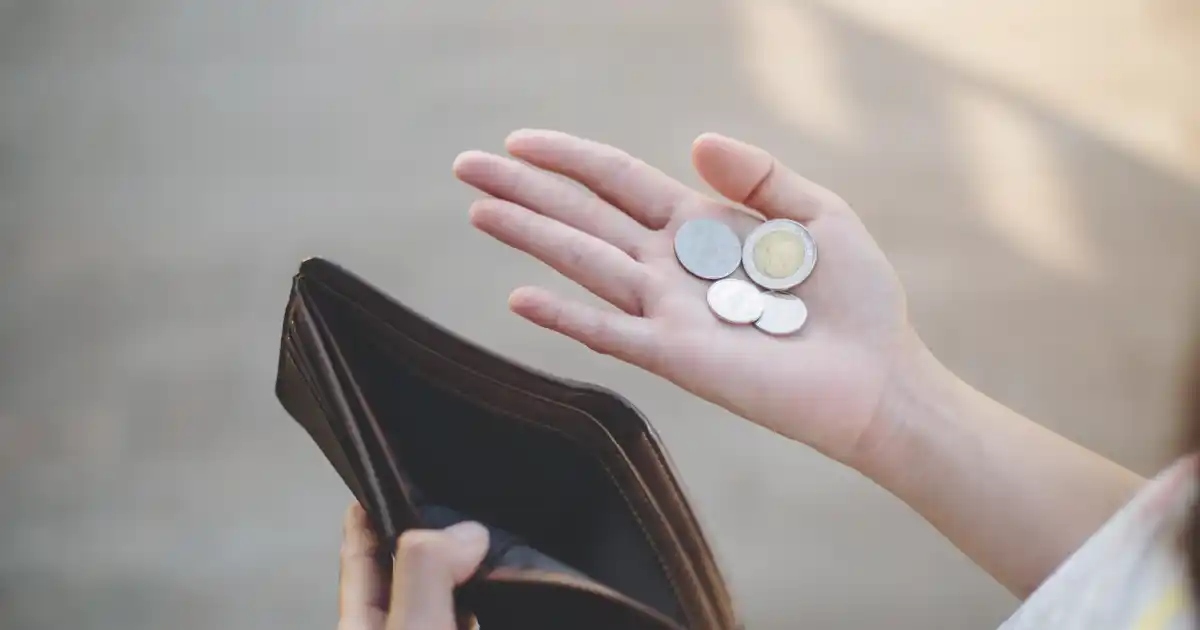Why Being Poor Is More Expensive Than Having Money?
Explore the economic paradox of why being poor is more expensive than having money. Unravel the hidden costs and societal implications.
Author:Gordon DickersonReviewer:Habiba AshtonJan 26, 20242K Shares49.6K Views

In the intricate tapestry of socio-economic dynamics, the paradoxical notion that being poor can be more expensive than having money is a striking and often overlooked reality.
This phenomenon extends beyond the immediate challenges of limited financial resources; it encompasses a web of interconnected factors that create a cycle of increased costs and diminished opportunities for those in poverty. Let's understand why being poor is more expensive than having money.
In this exploration, we delve into the various dimensions of the paradox "why being poor is more expensive than having money", shedding light on the underlying reasons, its profound impact on individuals and communities, and potential avenues for breaking the cycle.
It's hard to think about the long run when you're worried about money. Sometimes the choices you make help you at first, but they make things harder in the long run.
This is what it means to be poor in the U.S., and it's hard to get out of this loop. But what are the real costs of being stressed about money? Here are some ways that being poor costs even more money and some of the things that make poverty so expensive.
Here is why being poor is more expensive than having money.These keypoints were shared by a Reddit user obie1cajoby:
Poor Credit Impact
Limited income exacerbates financial challenges, driving up insurance costs and interest rates on loans and credit cards. This impediment makes it significantly harder to recover when facing financial setbacks.
Emergency Savings Struggle
In the absence of savings, unforeseen expenses, like a car breakdown or appliance failure, may force reliance on high-interest credit cards. This reliance incurs substantial costs due to steep interest rates, hindering financial stability.
Credit Card Points Dilemma
A constrained budget limits the ability to leverage credit card benefits fully. While those with more resources enjoy discounts, rewards, and cashback by paying in full each month, individuals with limited income miss out on these opportunities.
ATM Fees Burden
Maintaining low balances often results in monthly charges and overdraft fees, while higher balances can offer fee reimbursements. This discrepancy in account types amplifies financial strain for those with limited resources.
Renting Vs. Owning
Renting becomes a perpetual challenge as costs increase each year, making it difficult for individuals with lower incomes to catch up financially. In contrast, owning a home provides stability with fixed payments and the added benefit of equity build-up.
Car Payment Predicament
Limited financial resources often lead to ongoing car payments, hindering financial flexibility. This perpetual cycle of car notes restricts the ability to invest and build wealth, perpetuating financial struggles.
Tax Implications
Income sources and business ownership offer opportunities for deductions, allowing individuals to retain a higher percentage of their paycheck compared to those with W2 income.
Bulk Buying Advantage
Budget constraints limit the ability to buy in bulk, missing out on potential savings achievable through larger purchases. This financial limitation affects overall spending patterns and household expenses.
Childcare Costs Challenge
High childcare expenses for low-income families, even with two paychecks, pose a significant obstacle to financial progress. This financial strain persists unless external family support is available.
Car Maintenance Strain
Limited financial resources often lead to reliance on older cars, resulting in more frequent repairs and maintenance costs. The strain of managing car-related expenses contributes to ongoing financial challenges.
Health Disparities Toll
Lower income correlates with reduced access to quality food, leading to a reliance on processed and fast food. This, coupled with higher stress levels and limited access to quality healthcare, contributes to elevated rates of diabetes and obesity, further impacting overall health.
Investment Barrier
Without extra funds, there is no capacity for investment. Tightening the budget can only go so far, highlighting the essential role of higher income in facilitating financial progress and the ability to invest for the future.
Another Reddit user added,
Another sad point would be late fees. If you can’t pay something on time due to low funds or living paycheck to paycheck, sometimes the checks don’t come in time for bill due dates or rent. Some of the late fees can be ridiculous. The first house I rented was through a scummy company and they would charge like $50 every day rent was late. Just paying late by 2 days was an extra $100 on top of rent.
Koriania explained it with the help of an example,
Don't forget the boots theory.
The reason that the rich were so rich, Vimes reasoned, was because they managed to spend less money.
Take boots, for example. He earned thirty-eight dollars a month plus allowances. A really good pair of leather boots cost fifty dollars. But an affordable pair of boots, which were sort of OK for a season or two and then leaked like hell when the cardboard gave out, cost about ten dollars. Those were the kind of boots Vimes always bought, and wore until the soles were so thin that he could tell where he was in Ankh-Morpork on a foggy night by the feel of the cobbles.
But the thing was that good boots lasted for years and years. A man who could afford fifty dollars had a pair of boots that'd still be keeping his feet dry in ten years' time, while the poor man who could only afford cheap boots would have spent a hundred dollars on boots in the same time and would still have wet feet.
Why Being Poor Is More Expensive Than Having Money? - FAQs
Why Is Being Poor Expensive?
Getting around, housing, and food are all much more expensive, and those are just the basics! When you add up the prices of healthcare (or lack thereof), education (including child care), and debt payments, being poor starts to look like a very expensive option.
What Are The Immediate Costs Associated With Being Poor?
Being poor often leads to higher costs for basic necessities like housing, food, and healthcare due to limited purchasing power.
How Does Poverty Contribute To A Cycle Of Debt And Predatory Lending?
Limited access to traditional banking services in poverty can result in individuals resorting to high-interest loans, perpetuating a cycle of debt.
What Is The Link Between Poverty, Health Disparities, And Long-term Medical Costs?
Individuals in poverty may face challenges in accessing quality healthcare, leading to untreated health issues and higher long-term medical costs.
What Policy Interventions Can Address The Paradox Of Why Being Poor Is More Expensive?
Policy interventions focusing on affordable housing, accessible healthcare, and education reform are essential to address systemic inequities.
What Steps Can Society Take To Shift The Narrative And Build A More Equitable Future?
Shifting the narrative requires collective efforts, including policy changes, community support, and a fundamental shift in societal perspectives to pave the way for a more equitable future.
Why Poor People Pay More?
It's a shame that many low-income families don't have the skills and tools to be smart shoppers. They probably don't have as much access to the Internet, newspapers, and other tools that can help them compare prices and learn how to handle their money well so that they can get the most for their money. Being poor costs more in the long run.
Conclusion
The paradox of why being poor is more expensive than having money is a stark reflection of systemic inequities. Breaking this cycle requires a collective effort, involving policy changes, community support, and a fundamental shift in societal perspectives.
By addressing the root causes and providing avenues for economic empowerment, society can pave the way for a more equitable future, where the costs of poverty are not disproportionately borne by those already facing economic challenges.
Jump to
Poor Credit Impact
Emergency Savings Struggle
Credit Card Points Dilemma
ATM Fees Burden
Renting Vs. Owning
Car Payment Predicament
Tax Implications
Bulk Buying Advantage
Childcare Costs Challenge
Car Maintenance Strain
Health Disparities Toll
Investment Barrier
Why Being Poor Is More Expensive Than Having Money? - FAQs
Conclusion

Gordon Dickerson
Author

Habiba Ashton
Reviewer
Latest Articles
Popular Articles

